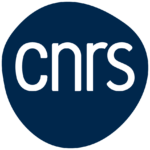Scientific Committee
Comité scientifique
Francis Bach (Centre Inria de Paris)
Rachel Cummings (Columbia University)
Justin Solomon (Massachusetts Institute of Technology)
Gabriele Steidl (TU Berlin)
Soledad Villar (Johns Hopkins University)
Organizing Commitee
Comité d’organisation
Elsa Cazelles (CNRS, Université de Toulouse)
Hadrien Hendrikx (INRIA Grenoble)
Mathurin Massias (INRIA Lyon)
Kimia Nadjahi (CNRS, ENS Paris)
Lorenzo Rosasco (University of Genova & MIT)

IMPORTANT WARNING: Scam / Phishing / SMiShing ! Note that ill-intentioned people may be trying to contact some of participants by email or phone to get money and personal details, by pretending to be part of the staff of our conference center (CIRM). CIRM and the organizers will NEVER contact you by phone on this issue and will NEVER ask you to pay for accommodation/ board / possible registration fee in advance. Any due payment will be taken onsite at CIRM during your stay.
The Learning and Optimization in Luminy conference aims at studying the interactions between statistical learning and optimization. From text translation and image generation to health applications, the practical successes of machine learning (ML) and generative models are ubiquitous; they have been strongly stimulated by the growth in model size and data availability. The ever-growing size of ML models, along with their increasing adoption in sensitive domains, raises numerous challenges, from ownership to the environmental impact, calling for new statistical modeling tools and improved optimization techniques. The conference program will therefore center around three research areas related to the aforementioned challenges in ML: generative modelling, optimization for deep learning and trustworthy machine learning. These topics, interesting in their own right, are also deeply interconnected in the search for better approaches to machine learning.
Learning and Optimization in Luminy 2026 aims to bring together young researchers and experts from these fields to discover recent advances and foster new collaborations. The most influential and internationally recognized researchers in the different fields mentioned above will be invited to present their most innovative work. This interdisciplinary scientific dissemination will also benefit young researchers, as doctoral and post-doctoral students will also be invited. Finally, time slots will be specially dedicated to encourage the setting up of working groups.
La conférence Apprentissage et Optimisation à Luminy vise à étudier les interactions entre l’apprentissage statistique et l’optimisation. De la traduction de textes à la génération d’images en passant par les applications dans le domaine de la santé, les succès pratiques de l’apprentissage automatique et des modèles génératifs sont omniprésents et ont été fortement stimulés par l’augmentation de la taille des modèles et de la disponibilité des données. La taille croissante des modèles d’apprentissage automatique, ainsi que leur adoption de plus en plus fréquente dans des domaines sensibles, soulèvent de nombreux défis, de la propriété à l’impact environnemental, nécessitant de nouveaux outils de modélisation statistique et des techniques d’optimisation améliorées. Le programme de la conférence s’articulera donc autour de trois domaines de recherche liés aux défis susmentionnés en matière de ML : les modèles génératifs, l’optimisation pour l’apprentissage profond, l’apprentissage automatique “fiable”. Ces sujets, intéressants en eux-mêmes, sont aussi profondément interconnectés dans la recherche de meilleures approches de l’apprentissage automatique.
Apprentissage et Optimisation à Luminy 2026 vise à rassembler de jeunes chercheurs et des experts de ces domaines pour découvrir les avancées récentes et favoriser de nouvelles collaborations. Les chercheurs les plus influents et reconnus internationalement dans les différents domaines précédemment mentionnés seront invités à présenter leurs travaux les plus innovants. Cette diffusion scientifique interdisciplinaire profitera également aux jeunes chercheurs, puisque des doctorants et des post-doctorants seront également invités. Enfin, des plages horaires seront spécialement consacrées à la mise en place de groupes de travail.
SPEAKERS
To be announced



